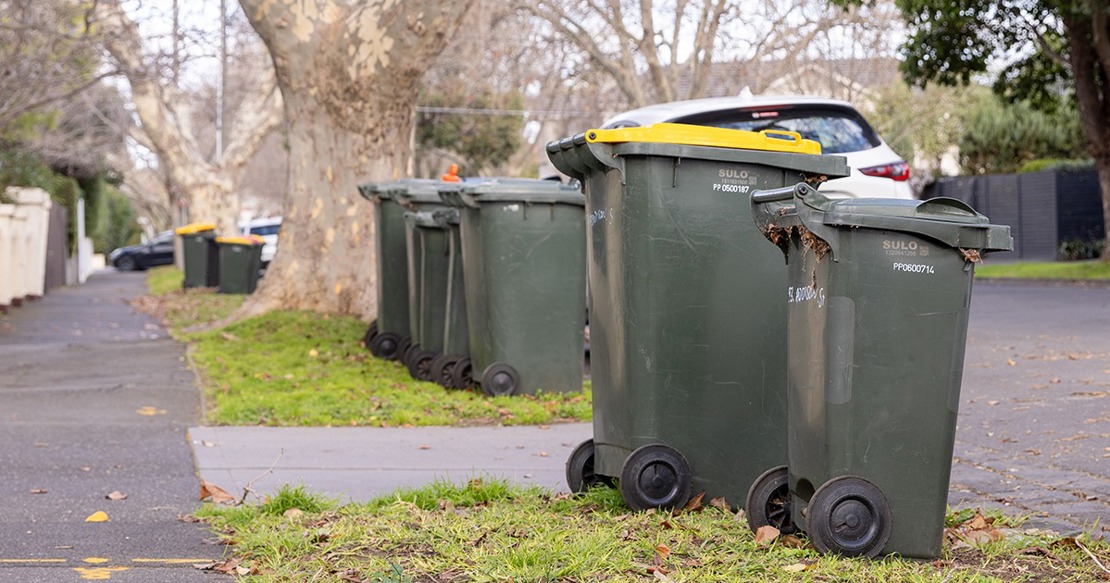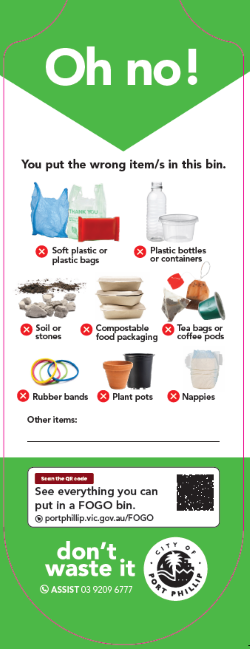Kerbside bin education program launching soon

Over the last 12 months, we have reduced the amount of recyclable material we send to landfill. This includes mixed recycling and FOGO materials (food and garden waste). This is fantastic news, but as a community, we still have work to do. A key opportunity for improvement is reducing contamination in our FOGO bins as this increased in 2024 to 7 per cent from 3.1 per cent in 2023.
This is one of the reasons we are starting a new kerbside auditing and education program. One goal is to give us more up-to-date information on how residents are using their kerbside bins. We want to know how full bins are and if there are any items that people are regularly putting in the wrong bin. This will help us better understand how we’re tracking towards our goals as outlined in our Don’t Waste It! strategy. Another goal is to improve how bins are used by providing real-time feedback to residents through bin tags and letters. The ultimate aim is to maximise recycling including preventing recyclable material from going to landfill.
This program is similar to our previous 2020 bin tagging program, ‘Recycling Reset’. Follow-up audits of buildings that were part of that program showed a decrease in bin contamination. We expect this latest program will have a similar effect: reducing confusion and encouraging correct bin usage. By maximising what gets recycled we can help protect our environment while minimising disposal costs.
How the auditing will work
The program is expected to run from later this month until July 2025. We will be auditing a relevant sample of households across our City. We will then return to evaluate the effectiveness of the program. Not all households will be included.
This is an audit and education program only. Fines won’t be issued if bins have not been used correctly. The bins will only be visually inspected, and we will not be keeping any contents.
When a household’s bin has been used correctly and no contaminants are visible, their bin will receive a ‘thank you’ tag. Where contamination can be seen, a tag will be fixed to the bin naming the incorrect item. Both tags will include a QR code linking to more information on correct bin usage.
For those in apartments and units with communal skip-style bins, we will communicate by sending a letter only to the Building Manager / Owners Corporation.

An example of a bin tag for FOGO - this tag will be used when the wrong item is found in the FOGO bin.
How we will use the results
We will use the information we collect in several ways:
- To give us more detailed and up-to-date data on how we’re tracking towards our Don’t Waste It! Strategy and Victorian Government standards.
- To help us create more targeted and effective education programs tailored to different housing types, for example, houses and townhouses versus apartments and unit blocks.